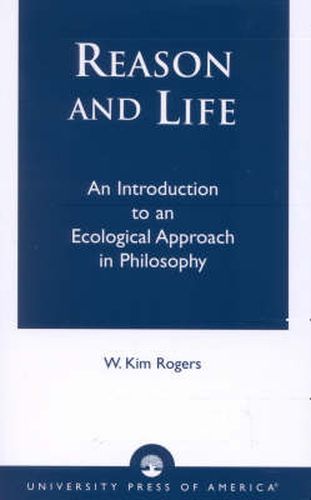Readings Newsletter
Become a Readings Member to make your shopping experience even easier.
Sign in or sign up for free!
You’re not far away from qualifying for FREE standard shipping within Australia
You’ve qualified for FREE standard shipping within Australia
The cart is loading…






Reason and Life begins with a critical historical examination of past forms of reason (Ancient and Modern) as well as more recent contenders (Existentialism, Phenomenology, the New Marxism ). All of these are critiqued as not capable of adequately interpreting life, that is, the interaction of living beings and their environment, because of their fixation upon the role of the being-in-itself, the knower, the individual consciousness. The author suggest as an alternative approach replacing Modern reason with a razon vital or an organismic approach, initially present in the writings of Jose Ortega y Gasset and Kurt Goldstein, but also to some degree in the works of a few later philosophers and psychologists of the twentieth century. To adopt the interactions of living beings and their environments as one’s starting point is what the author calls, following the usage of J.J. Gibson, an ecological approach.
$9.00 standard shipping within Australia
FREE standard shipping within Australia for orders over $100.00
Express & International shipping calculated at checkout
Reason and Life begins with a critical historical examination of past forms of reason (Ancient and Modern) as well as more recent contenders (Existentialism, Phenomenology, the New Marxism ). All of these are critiqued as not capable of adequately interpreting life, that is, the interaction of living beings and their environment, because of their fixation upon the role of the being-in-itself, the knower, the individual consciousness. The author suggest as an alternative approach replacing Modern reason with a razon vital or an organismic approach, initially present in the writings of Jose Ortega y Gasset and Kurt Goldstein, but also to some degree in the works of a few later philosophers and psychologists of the twentieth century. To adopt the interactions of living beings and their environments as one’s starting point is what the author calls, following the usage of J.J. Gibson, an ecological approach.